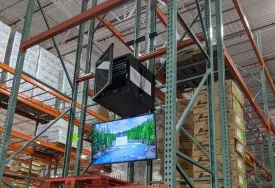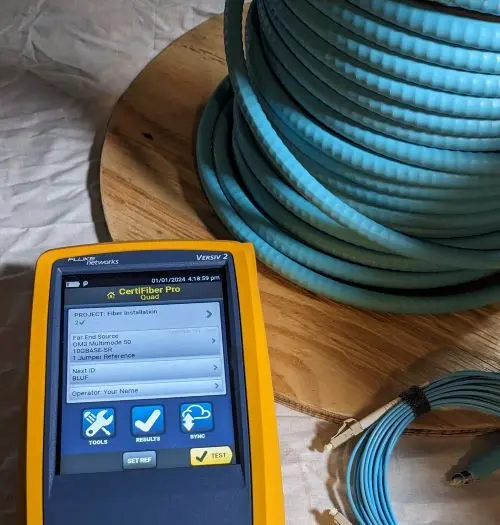Michigan, USA
WiFi integration for IoT systems

WiFi integration for IoT systems represents a pivotal advancement in the connectivity landscape, offering seamless communication and data exchange between devices and systems. The Internet of Things (IoT) has revolutionized the way we interact with technology, transforming everyday objects into smart devices capable of collecting, sending, and receiving data. By integrating WiFi capabilities into IoT systems, devices can leverage existing wireless networks to enhance functionality and accessibility. This integration is particularly advantageous for smart homes and industrial applications, where it enables effortless control and monitoring of devices such as smart thermostats, lighting systems, and security cameras. WiFi’s high-speed data transfer capabilities and widespread availability make it a preferred choice for connecting IoT devices, ensuring that they can operate effectively without the need for complex wiring or specialized networking infrastructure.
The benefits of WiFi integration for IoT systems extend beyond mere connectivity. It facilitates the development of scalable and flexible IoT ecosystems that can adapt to evolving technological demands and consumer preferences. With WiFi, IoT devices can be easily added or removed from networks, allowing users to expand their smart environments without significant hassle. Moreover, WiFi's ability to support multiple devices simultaneously makes it ideal for environments where numerous IoT devices need to coexist, such as smart cities or large industrial settings. This scalability is complemented by WiFi's security features, which can be enhanced to protect sensitive data transmitted between devices, making it a secure option for critical applications such as healthcare monitoring systems and financial services.
Incorporating WiFi into IoT systems also opens doors to enhanced data analytics and real-time decision-making processes. With constant and reliable connectivity, IoT devices can continuously stream data to centralized systems or cloud platforms, where the data can be analyzed to derive actionable insights. This capability is crucial for industries like agriculture, where IoT devices equipped with WiFi can monitor environmental conditions and optimize resource use, or in retail, where consumer behavior data can be analyzed to personalize shopping experiences. Furthermore, the integration of WiFi in IoT systems supports the development of innovative solutions that harness the power of artificial intelligence and machine learning, providing opportunities for advancements in automation and efficiency across various sectors. As IoT technology continues to evolve, the role of WiFi as a foundational element in these systems will only grow, driving further innovation and connectivity across the globe.
We bring a high level of expertise to every project, backed by years of industry experience. Please visit our work to see detailed examples of our completed projects and the high-quality standards we uphold.

Our team stays up-to-date with the latest network standards and installation practices, ensuring that your systems are cutting-edge and compliant. This means we use the most current technologies and methods to deliver reliable, efficient, and future-proof networking solutions.

We use only the highest quality copper, fiber, and AV products, ensuring superior performance and durability in all our installations. Each product is certified to meet or exceed manufacturers' specifications, guaranteeing optimal reliability and efficiency for your network.

Our data cabling projects are performed professionally, reliably, and with full accountability, giving you peace of mind and confidence in our services.
Upgraded a global financial services company’s WAN to an AT&T rate adjustable 100Mbps interstate-rated switched Ethernet circuit. Install flexible conduit from the parking garage telco room to the building interior. Pull 300’ CAT 5E CMP cable from AT&T demarc using the building’s existing conduit over the lobby and up to the tenant’s 3rd floor MDF...
Complete build-out of the cable plant for a national fine dining restaurant. Install flame-retardant telecom backboards in the electrical room. Install an 11U wall-mount open swing rack on the backboard. Ground rack to building UFER with #6 AWG. Core drill into the masonry block wall and install 1-¼ EMT sleeves. Build overhead cable support system in kitchen and dining...
Achieve higher bandwidth and faster data transfer rates for an investment bank branch’s Main Distribution Frame (MDF) to Immediate Distribution Frame (IDF) backbone. Pull (1) 6-strand armored fiber, 50 MIC MM OM4 cable and (4) CAT 6 CMP cables from 1st floor MDF to 1st floor IDF using existing cable pathways. Ground armored fiber to building UFER. Terminate, certify, and label all...
Complete network build-out of the appliances & kitchen cabinets department for a national home improvement retailer. Label existing data and voice cabling that connects to existing store terminals, printers, and phones. Reroute existing cabling to a temporary location. Move store terminals, printers, and phones to...

Michigan, a dynamic and diverse state located in the Great Lakes region of the United States, is renowned for its striking natural beauty, vibrant culture, and robust economy. With a population of approximately 10 million residents, Michigan is the 10th most populous state in the nation, offering a blend of urban excitement and rural tranquility.
One of Michigan's most distinctive features is its unique geography, being the only state split into two large peninsulas – the Upper and Lower Peninsulas, separated by the majestic Straits of Mackinac. This geographical division contributes to Michigan's extensive 3,288 miles of freshwater coastline, the longest of any political subdivision in the world, making it a haven for water enthusiasts and nature lovers. The state's abundant natural resources, including its vast forests and numerous inland lakes, support a thriving outdoor recreational industry.
Michigan's cultural landscape is equally compelling, with a rich history deeply rooted in Native American heritage, European settlement, and the automotive revolution. The city of Detroit, known as the birthplace of the American auto industry, is home to the "Big Three" automakers: General Motors, Ford, and Stellantis North America. This legacy has earned Michigan the nickname "The Automotive State," which continues to be an economic powerhouse and innovation hub with a growing focus on advanced manufacturing and technology.
Detroit also boasts a vibrant arts scene, famous for its contributions to music, particularly Motown and techno. Visitors can explore landmarks such as the Detroit Institute of Arts, which houses one of the most significant art collections in the country, and the Motown Museum, offering a nostalgic journey through the storied history of Hitsville U.S.A.
Ann Arbor, another key city, is home to the University of Michigan, a prestigious institution recognized for its research contributions and academic excellence. The city thrives on a blend of youthful energy and cultural diversity, offering numerous festivals, theaters, and galleries that enrich the community.
Michigan's economy is bolstered by a diverse range of industries beyond automotive, including agriculture, manufacturing, information technology, and tourism. The state's fertile farmland produces an array of crops, with Michigan being a top producer of cherries, blueberries, and apples. Additionally, the burgeoning craft beer industry and a growing number of wineries highlight Michigan's emerging role in artisanal food and beverage production.
For residents, Michigan offers a high quality of life, with affordable housing, excellent educational institutions, and a strong sense of community. The state is also appealing to businesses, thanks to its strategic location, skilled workforce, and supportive business environment.